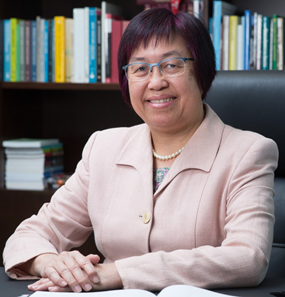Speaker: Janny Leung (University of Macau)
Place: NOVA FCT, sala Samsung (Auditório Professor Manuel Laranjeira) do Edifício I
Part I – Public transport for smart cities
September 17, 15:30 – 17:30 with a short break
Abstract: The idea of a smart city is one that utilizes IoT technologies and data analytics to optimize the efficiency of city operations and services, so as to provide a high quality of life for its citizens. Due to reduced public funding, many public transportation systems are already facing challenges to maintain their services. For a smart city, the goal of public transportation is not simply the movement of people, but to provide mobility for living. In order to provide sufficient coverage/frequency, an integrated co-ordinated multi-modal public transportation system is needed, leading to substantial increase in operational complexity. Environmental concerns and the recent pandemic may also have changed work and commuting patterns in the future. For smart cities, public transport must offer ubiquitous access, real-time response to demand, convenience and quality service, and energy-efficient operations. This talk will discuss the challenges in network design, operations planning, scheduling and management of smart public transport systems.
Part II – Real-time re-scheduling for tramway operations
September 18, 15:30 – 17:30 with a short break
Abstract: We study a vehicle and crew (re-)scheduling problem for a public transit system which is subject to highly stochastic travel times and disruptions. Our research is motivated by the operations of the tramways system in Hong Kong which faces severe challenges because it does not run on dedicated tracks but must share the road with vehicular traffic in heavily congested areas. We develop a decision-support system that optimises service frequencies, meal-break delays and overtime costs, and taking stochastic time-dependent travel-time uncertainties into account. The efficiency and effectiveness are evaluated via simulation. The results identify the potential benefits of revising the schedule dynamically in real time using optimization models.
We will also discuss bus-bridging strategies to handle major disruptions.
Registration for the short course:
Short Bio: Janny Leung obtained an S.B. degree in Applied Mathematics from Harvard University, an M.A. in Mathematics from Oxford University and a Ph.D. in Operations Research from the Massachusetts Institute of Technology. Before returning to Hong Kong in 1996, she was a faculty member at Yale University and the University of Arizona.
Her main research interests are combinatorial optimization, transportation logistics and operational research. In Hong Kong, she has collaborated with local companies on projects involving workforce scheduling, facility layout, supply chain management and public transit planning. She has published in many academic journals, has been invited as plenary speaker at major international conferences, and served on the editorial boards of the leading journals in her field. Her research has been well-supported by the National Science Foundation of USA and the Hong Kong Research Grants Council. She is a Fellow of the Chartered Institute of Logistics and Transport, a Fellow of the Hong Kong Institution of Engineers, a Fellow of the Institute for Operations Research and the Management Sciences (Informs) and a Fellow of the International Federation of Operational Research Societies (IFORS).

